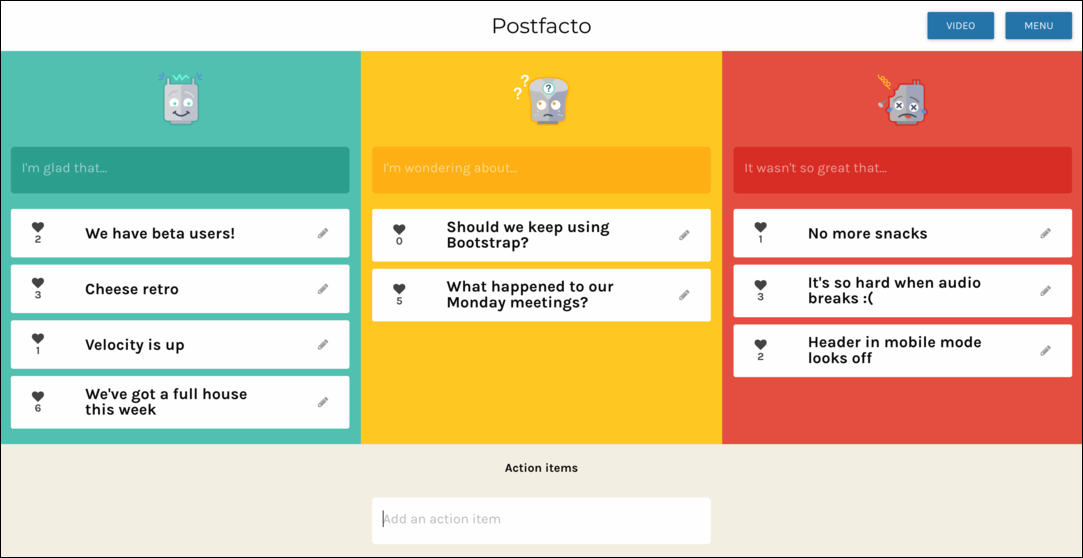Postfacto is a free, open-source and self-hosted retro tool aimed at helping remote teams.
Postfacto was created by Pivotal Labs by a team in their Sydney office. It was originally available as a hosted SAAS product at postfacto.io but has since been open sourced and focused on being a self hosted product. Postfacto is made up of a React web app and a Ruby on Rails API that provides an API for the front end.
You can stay up to date with the latest Postfacto releases by signing up to our mailing list.
Postfacto let's you run an agile retrospective even when your team is distributed across the world.
Retros are designed to help the team improve and that's hard to do without keeping track of the actions the team needs to carry out and the also the one's you've achieved. Postfacto tracks the items you enter week to week to help you keep on top of them.
You can create private retro boards for your team that are password protected or choose to leave them public so that anyone you give the link to can access it. You can also let users sign up to your instance using Google OAuth or control access with the admin dashboard.
Postfacto will auto generate you an appear.in room for your team to chat in during the retro but you can also choose to link to your own conferencing tools.
You can deploy your own Postfacto to Pivotal Web Services or Pivotal Cloud Foundry and stay in control of your own data.
- Ruby 2.4.0
- bundler
- rspec
- Node 6
- npm 3.10.10 (
npm install -g npm@3.10.10) - gulp
- chromedriver
To avoid having to install and manage these dependencies you can use the Postfacto docker image for development.
Before development you'll need to install library dependencies (gems and npm packages) for the web, api and e2e codebases by running:
./deps.shYou can run Postfacto locally at http://localhost:3000 by running:
./run.shThe admin dashboard will be available at http://localhost:4000/admin. You can create an admin user using the following rake task in the api directory:
ADMIN_EMAIL=email@example.com ADMIN_PASSWORD=password rake admin:create_userYou can run the tests for the whole project in the root directory by simply running:
./test.shcd web
gulp spec-appcd api
bundle exec rakecd web
gulp local-acceptanceDownload the latest release and follow the included instructions on deploying your own instance of Postfacto.
See our Contributing Guide.
Postfacto is licensed under the GNU Affero General Public License (often referred to as AGPL-3.0). The full text of the license is available here. It's important to note that this license allows you to deploy an instance of Postfacto for private, public or internal use.
